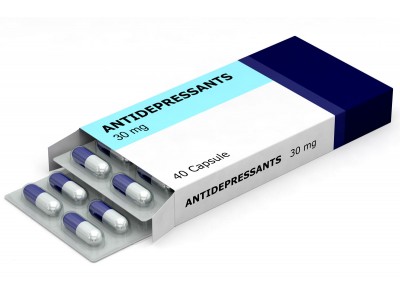Antidepressants, anti-anxiety medications, and mood stabilizers are distinct classes of medications used to treat various mental health conditions, each with specific mechanisms of action and therapeutic purposes.
Antidepressants are primarily used to treat depression, but they are also effective for anxiety disorders. They work by altering the levels of neurotransmitters in the brain, such as serotonin, norepinephrine, and dopamine, to improve mood and emotional stability. Common types of antidepressants include selective serotonin reuptake inhibitors (SSRIs) like fluoxetine and sertraline, serotonin-norepinephrine reuptake inhibitors (SNRIs) like venlafaxine and duloxetine, and tricyclic antidepressants (TCAs) like amitriptyline. Antidepressants are often the first line of treatment for depression due to their efficacy and generally favorable side effect profile.
Anti-anxiety medications, or anxiolytics, are specifically designed to reduce anxiety symptoms. Benzodiazepines, such as diazepam and lorazepam, are fast-acting medications that provide short-term relief of acute anxiety but can be habit-forming and are generally not recommended for long-term use. Non-benzodiazepine anxiolytics, like buspirone, and certain antidepressants, especially SSRIs and SNRIs, are also used to manage chronic anxiety disorders. For many anxiety disorders, SSRIs and SNRIs are preferred as they can provide long-term relief without the risk of dependency associated with benzodiazepines.
Mood stabilizers are primarily used to treat mood disorders, especially bipolar disorder. They help to balance mood swings between mania and depression. Common mood stabilizers include lithium, valproate, and lamotrigine. These medications work through various mechanisms, such as modulating neurotransmitter systems and stabilizing neuronal activity, to prevent extreme mood fluctuations.
For depression, SSRIs are typically recommended as the first line of treatment due to their effectiveness and relatively mild side effect profile. For anxiety disorders, SSRIs and SNRIs are often preferred initially, with benzodiazepines reserved for short-term or acute use. In the case of mood disorders like bipolar disorder, mood stabilizers are usually the first choice, sometimes in combination with antipsychotic medications, depending on the specific symptoms and severity.
Overall, the choice of medication depends on the specific diagnosis, the individual's symptoms, their medical history, and how they respond to initial treatments. A healthcare provider can tailor the treatment plan to best address the individual's needs.
